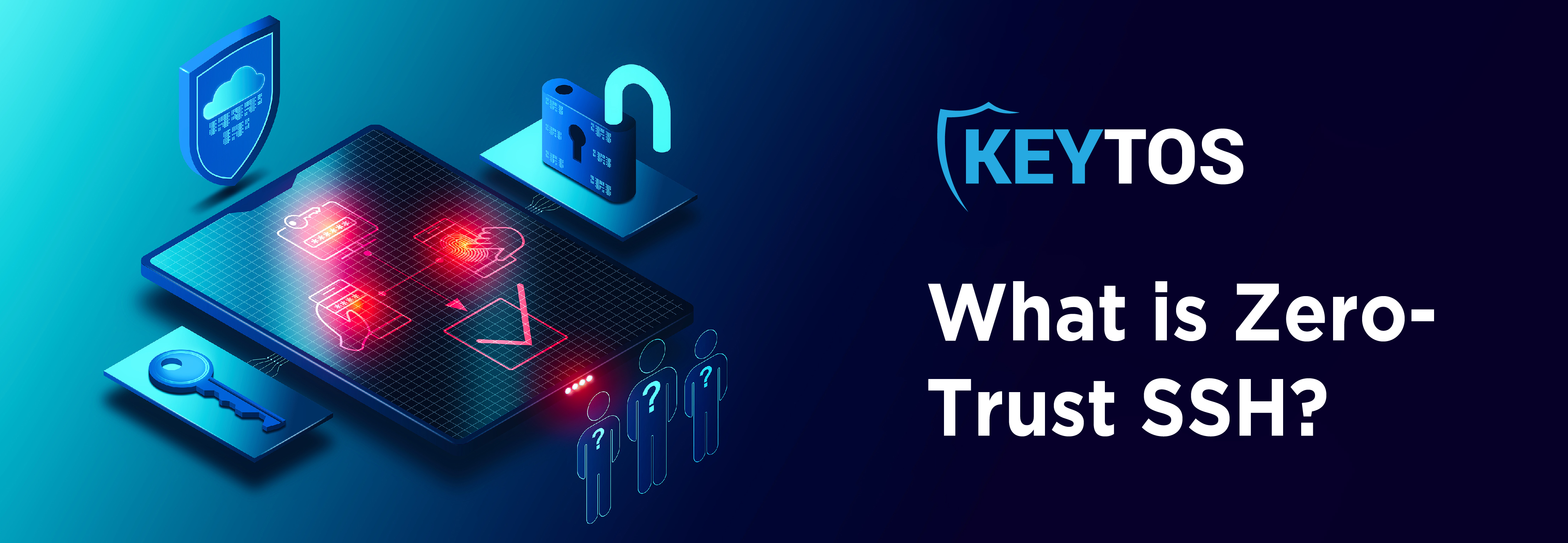
What is Zero Trust SSH?
In today’s day and age, secure communication is essential for protecting sensitive information and preventing cyber-attacks. One common way to achieve secure communication is by using the Secure Shell (SSH) protocol, which is a widely used cryptographic network protocol for securely exchanging data over a network.
However, not all SSH implementations are the same. In particular, there is a difference between traditional SSH and zero trust SSH. In this post, we will explain what zero trust SSH is and why most compliance certifications, such as PCI, require SSH key rotation.
What is Zero Trust SSH?
Traditional SSH uses a static, pre-shared key for authentication. This means that the same key is used for every connection, and anyone who has access to the key can authenticate and access the system. This can be a security risk, as an attacker who obtains the key can gain unauthorized access to the system.
Zero trust SSH is a more secure alternative to traditional SSH. Instead of using a static, pre-shared key, zero trust SSH uses a dynamic certificate that is generated on-demand for each connection. This means that each connection has a unique key that is only valid for that specific connection. This makes it much more difficult for an attacker to gain unauthorized access to the system.
Why Do Compliance Certifications Require SSH Key Rotation?
Many compliance certifications, such as the Payment Card Industry Data Security Standard (PCI DSS), require organizations to implement strong security controls to protect sensitive information and prevent unauthorized access. One key security control that is often required by compliance certifications is SSH key rotation, which is the practice of regularly changing or rotating SSH keys to reduce the risk of unauthorized access. The keys require rotation as they do not expire and need to be changed to assure security.
SSH key rotation is important because it helps prevent an attacker from using a stolen or compromised key to gain unauthorized access to a system. By regularly changing or updating SSH keys, organizations can ensure that any keys that may have been compromised are no longer valid, and that only authorized keys are in use.
Furthermore, many compliance certifications, such as PCI DSS, specifically require the use of zero trust SSH to ensure that dynamic, on-demand keys are used for authentication. This provides an additional layer of security and makes it even harder for an attacker to gain unauthorized access to a system.
SSH Certificates – The “Key” to Compliance
SSH certificates are a secure way to manage and authenticate SSH access to servers and network devices. They’re also an incredibly useful mechanism to help comply with SSH Key rotation requirements. SSH certificates enhance the security and control of SSH access by providing a central mechanism for issuing and managing SSH keys. Instead of relying ONLY on traditional SSH key pairs (public and private keys), SSH certificates provide an additional layer of security. SSH certificates are issued by a trusted Certificate Authority (CA) and are signed, providing strong cryptographic guarantees of authenticity. Users and hosts are issued certificates that contain their public keys along with other information, such as the user’s or host’s identity and expiration date. The CA’s digital signature verifies the authenticity of the certificate. When a user or host attempts to connect to a server, the server checks the incoming SSH certificate against its trusted list of CA certificates. If the certificate is valid and signed by a trusted CA, the user or host is granted access.
Benefits of Zero-Trust SSH
Zero-trust SSH is a more secure alternative to traditional SSH and is often required by compliance certifications such as PCI DSS. By using dynamic, on-demand keys for authentication, zero trust SSH helps prevent unauthorized access and reduces the risk of a security breach. Additionally, the use of SSH key rotation ensures that any keys that may have been compromised are no longer valid, and that only authorized keys are in use.
Implementing zero-trust SSH and SSH key rotation can be a complex process and may require specialized knowledge and expertise. Organizations that need to comply with compliance certifications such as PCI DSS may benefit from working with a trusted security partner who can help implement and manage these controls. Learn more about EZSSH and how we remove ALL the guesswork from the equation!
Zero trust SSH and SSH key rotation are essential security controls that can help protect sensitive information and prevent unauthorized access. By implementing these controls, organizations can improve their security posture and meet the requirements of compliance certifications such as PCI DSS.


